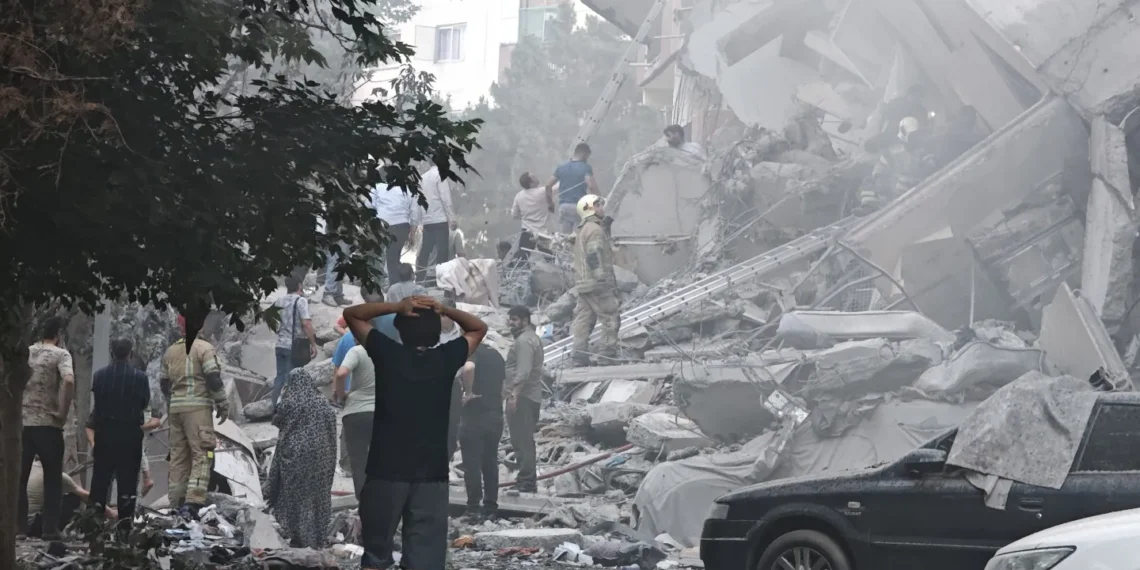Israel launched strikes across Iran on Friday, saying they targeted the “heart” of Iran’s nuclear programme.
The strikes killed Hossein Salami, chief of Iran’s Islamic Revolutionary Guards, a powerful branch of the country’s armed forces, other senior military figures and nuclear scientists, Iranian state media reported.
Civilians, including children, were also among those killed, state media said. The BBC is not able to independently verify these reports.
The Israeli military said Iran launched about 100 drones towards Israeli on Friday morning, with Israeli media reporting all the drones were intercepted.
A state of emergency was declared in Israel.
The US said it was not involved in the strikes. Multiple strikes were reported, including on Iran’s main nuclear enrichment facility.
Explosions were reported in Iran’s capital Tehran around 03:30 local time (01:00 BST).
Iranian state TV said residential areas in Tehran were hit, with blasts also heard north-east of the capital.
In Israel, residents were woken by air raid sirens around the same time and received emergency phone alerts.
Israel’s military said it had struck “dozens of military targets, including nuclear targets in different areas of Iran”.
Hours after the initial strikes, an explosion was reported at the Natanz nuclear facility, which is located about 225km (140 miles) south of the capital, according to Iranian state media.
The global nuclear watchdog, the International Atomic Energy Agency (IAEA), later confirmed the Natanz facility had been hit.
The IAEA said it was informed by Iranian authorities that there has been no increase in radiation levels at the Natanz site.
Israeli Prime Minister Benjamin Netanyahu said the strikes, called ‘Operation Rising Lion’ were “a targeted military operation to roll back the Iranian threat to Israel’s very survival”.
Related Articles:
- Israel’s military launches raids across occupied West Bank
- US, Israel reject Arab alternative to Trump’s Gaza plan
- Palestinian gunman kills 2 Israeli soldiers
He said the operation would “continue for as many days as it takes to remove the spread.
“In recent months, Iran has taken steps that it has never taken before, steps to weaponise this enriched uranium.
“If not stopped, Iran could produce a nuclear weapon in a very short time. It could be a year. It could be within a few months, less than a year. This is a clear and present danger to Israel’s very survival.”
In his address, Netanyahu also thanked US President Donald Trump for “confronting Iran’s nuclear weapons programme”.
An Israeli military official told the BBC that Iran had enough nuclear material to create nuclear bombs “within days”.
In response, Iran launched around 100 drones towards Israel on Friday morning, the Israel Defense Forces (IDF).
The Israeli military reported that all the drones were intercepted.
Iran’s foreign ministry said its armed forces would not “hesitate to defend Iran’s sovereignty with full strength and in the manner they deem appropriate”.
In a statement, the ministry called Israel’s operation “acts of aggression” and said “the US government, as the primary patron of this regime, will also bear responsibility.”







